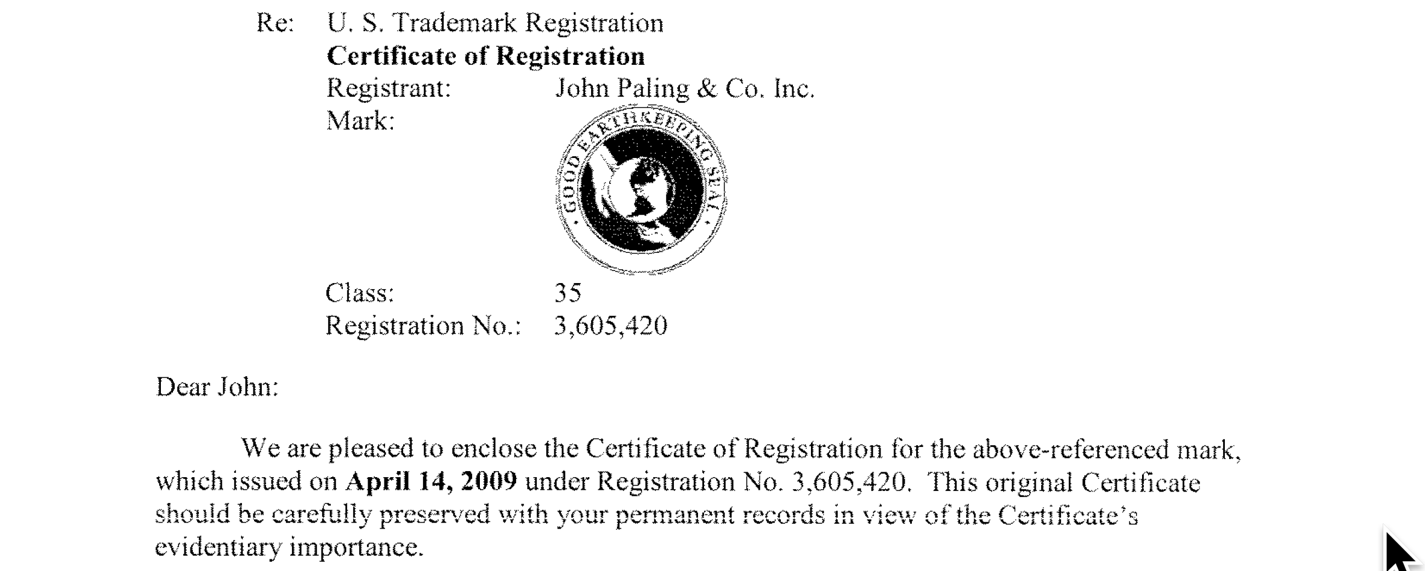John’s world extended across both corporate and grass roots environmental worlds. He personally belonged to several environmental groups but he also knew of presidents of companies who were doing their best to incorporate green ethics into their business practices. However, in those early days he learned that such businesses were typically afraid to make any claims of environmental responsibility for fear of becoming the focus of attacks by anti-business critics.
In an attempt to correct this situation, John developed an Environmental Institute that joined both environmental groups and businesses to seek and acknowledge POSITIVE environmental initiatives in the corporate world. He actually patented a “Good Earthkeeping Seal” that was intended to be a positive reinforcement to encourage respect and recognition for those businesses that were clearly trying to be environmentally responsible.

The concept was sound but the politics of seeking to be a middle ground organization in a polarized world proved to be an insurmountable challenge.
The Environmental Institute ran for several years at both a national and a local level before it was supplanted by government and industry-specific environmental seals. The practice of making the award and being able to justify the decision as to whom it was given turned out to be contentious issues. Skeptics would claim that the recipients had not been evaluated thoroughly enough. Here are some of the real life challenges that were encountered.
What happens if a division of a company had clearly done something of value but critics could point to other divisions of the same company that were under criticism for documented poor environmental performance? What if good environmental initiatives only arose as a result of a company being found to have previously been deficient in its environmental (or social) performance? In times of suspicion of any environmental claims by businesses, many corporations just wanted to meet their regulatory responsibilities and did not want to get publicity for receiving an award, believing it would only be grounds for criticisms of some aspects of its social reputation.
Finally, we became aware that many corporate advances could only be evaluated by paying professionals with expensive technology and we judged that the costs of applying such a review process did not make sense when balanced against the limited prestige of receiving our award.


